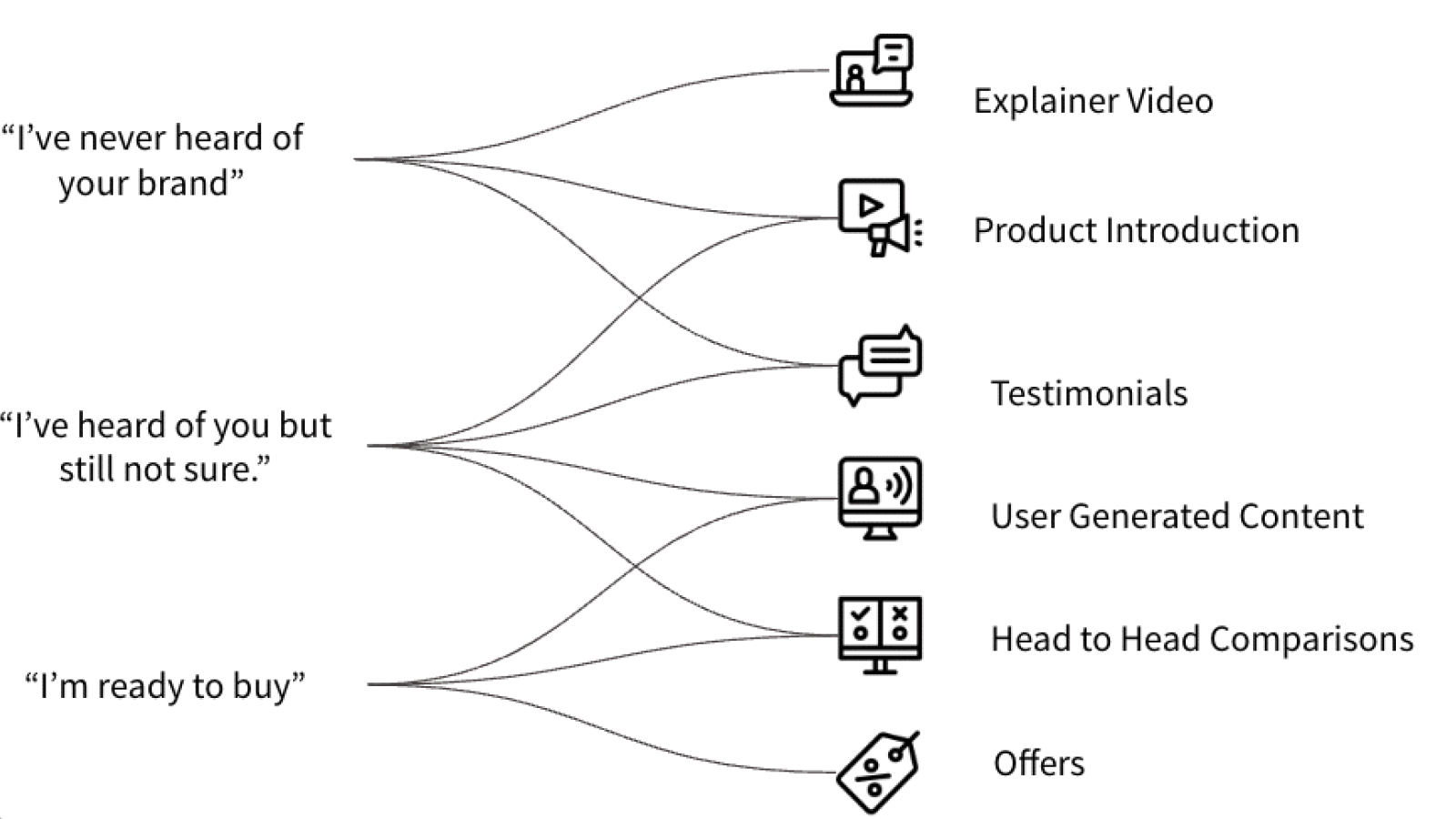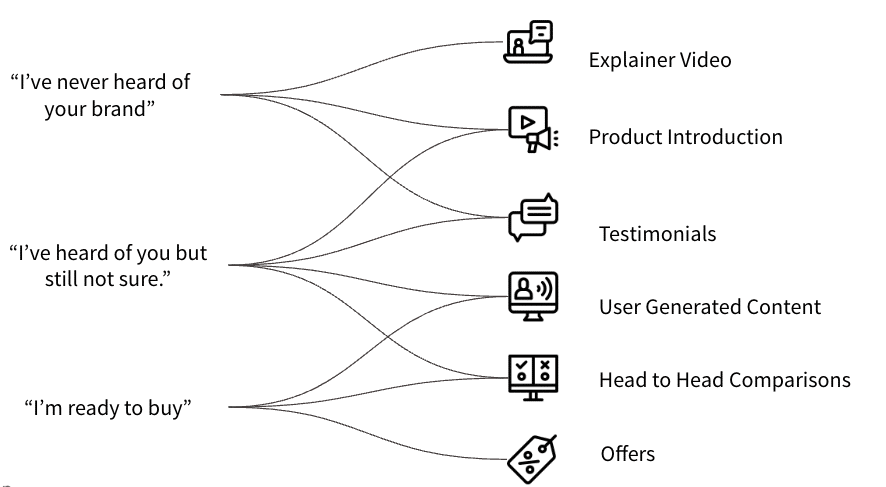
4 new rules for PPC ad creative
It’s a fascinating time to be a marketer. The advent of AI and machine learning has changed the PPC game, touching every aspect of a search marketer’s daily job.
Much has been written about using AI to improve advertising performance through audience targeting or bid optimization. But another massive shift we’re seeing is AI’s impact on creative requirements for digital campaigns.
In the early 2000s, digital ad campaigns primarily consisted of banner ads in standard IAB sizes built for desktops.
In the 2010s, mobile device usage skyrocketed, and more mobile-friendly sizes were added.
And then, social media and video ad formats were introduced, making the digital landscape more complex for creative teams but still manageable with the “old method” of a single brief yielding multiple ad variations.
But this new age of machine learning should cause all advertisers to pause and rethink their creative process.
Rule 1: One-to-one marketing
A commonly overlooked portion of machine learning is that the algorithm will serve the best creative for that particular user based on the information that it has.
We no longer have to predetermine where someone is in their purchase cycle.
But we must give machine learning all the assets to serve the best ad for that user at any given time.
Tactic: Design creative for the specific funnel/audience
Creative teams should design creative to reach every step of the purchase journey.
For example, providing separate explainer videos, product benefit videos, testimonial videos, static ads with strong offers, and head-to-head comparisons will give the algorithm enough to address each stage of the funnel.

Marketers can use explainer videos at the top of the funnel to reach users who need to become more familiar with your brand.
Specific product benefit videos, testimonials or social proof can be used in the mid-funnel to address the needs of familiar users and those not ready to buy.
And finally, incentives/offers and head-to-head comparisons would be served to those prepared to buy.
Rule 2: Feed the machine
Machine learning algorithms need lots of inputs to do their job.
Typically, marketers talk about feeding the machine in terms of data. But we need to feed the machine with creative, too. This creates a massive problem for lean creative teams or those with lean creative budgets.
There is no such thing as too much creative. Today’s advertiser needs creative to address multiple:
- Channels.
- Ad formats.
- Aspect ratios.
- Stages of the funnel.
- Asset types.
- Calls to action.
And every variation in between.
Tactic: Make use of all aspect ratios
For maximum creative “portability,” create the following:
- 1:1 and 9:16 for static ads.
- 1:1, 4:5 and 16:9 for video ads.
Tactic: Vary your ad formats
Go beyond just testing static vs. video.
Test different types of each, including:
- Brand videos.
- Product-focused videos.
- Subtle motion.
- Text overlays on images.
- User-generated content.
- HTML5.
- Static.
- Animated.
- And more.
Rule 3: Account for short attention spans
Attention spans have gotten considerably shorter over time.
We're seeing the strongest performance results these days from six-second ads.
Six seconds!
So while we have all these options to get our creative in front of the right people at the right time, we only have a few seconds to ensure our creative is impactful.
Tactic: Design creative for short attention spans
Everyone loves a good story. But today's attention spans push creative teams to think differently about their video creative.
Some guidelines to follow:
- Add six-second ads to the mix (in addition to 15 and 30 seconds).
- Move your story arc forward to capture attention within 5 seconds.
- Highlight your logo within 3 seconds.
- Include a call to action within 5 seconds.
Rule 4: Not just tests, actionable tests
Another excellent benefit of machine learning is marketers' ability to test and adjust creative on the fly quickly.
While an A/B test might be challenging inside the platform, algorithms are great at testing minor creative differences like text overlays, color schemes, messaging variations, etc.
Tactic: Formalize creative A/B tests for major shifts
A/B tests should still be used in cases where statistical significance is needed to determine major creative or format superiority.
Some examples might be specific incentives, brand positioning, video cuts, etc.
Redesigning the creative process
This new era of creative proliferation calls for brands to rethink their design process. Creative teams must be more scalable to design unique ads for every channel, ad format, funnel stage, and asset type.
Instead, brands should consider taking a single production or concept and turning it into hundreds of assets.
Media teams must work with creative teams to revise ads in-market and take advantage of real-time insights.
Advertisers who design within these new requirements will truly seize the opportunity of machine learning and dominate the industry.
The post 4 new rules for PPC ad creative appeared first on Search Engine Land.
from Search Engine Land https://searchengineland.com/ppc-ad-creative-new-rules-394857
via free Seo Tools